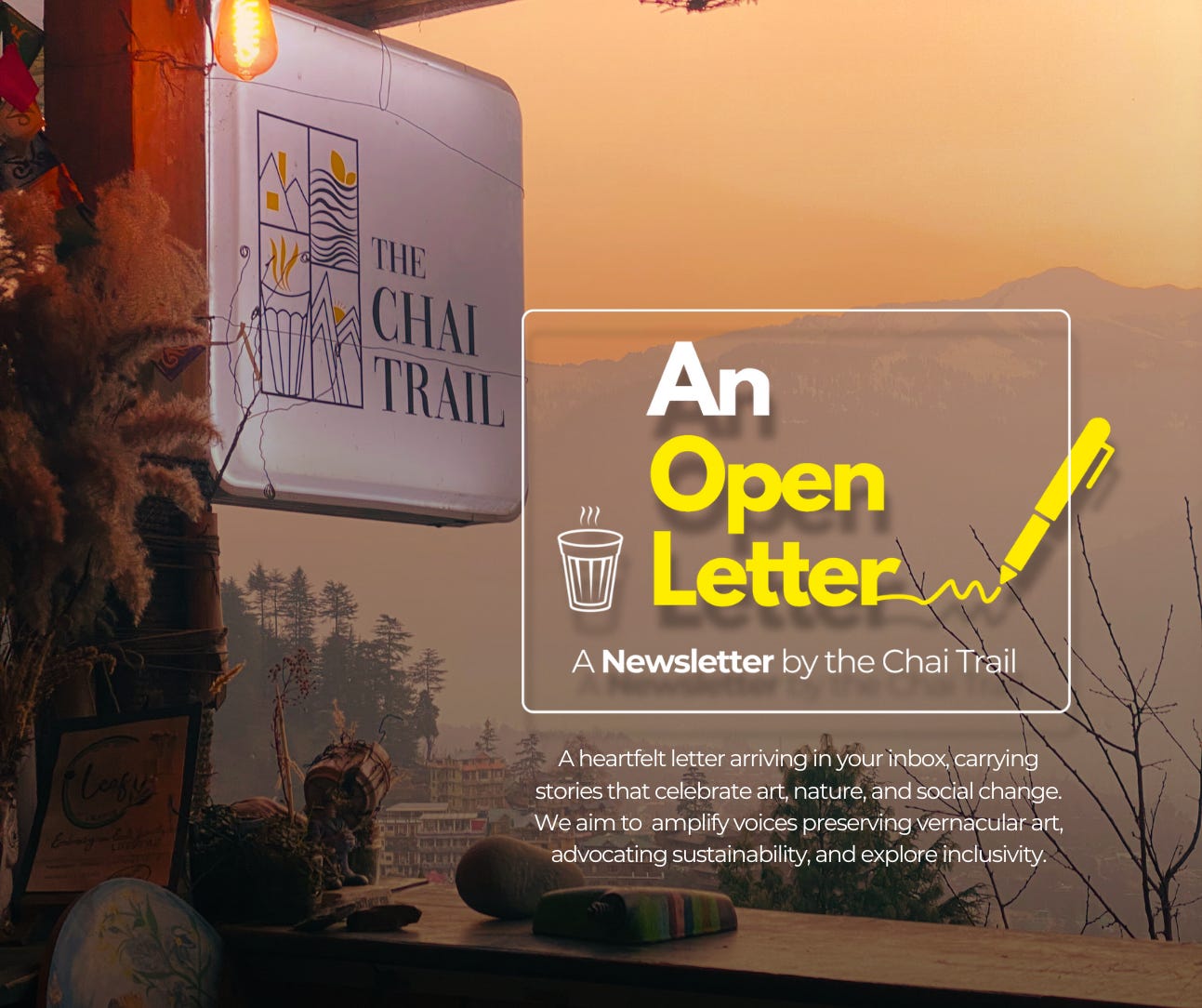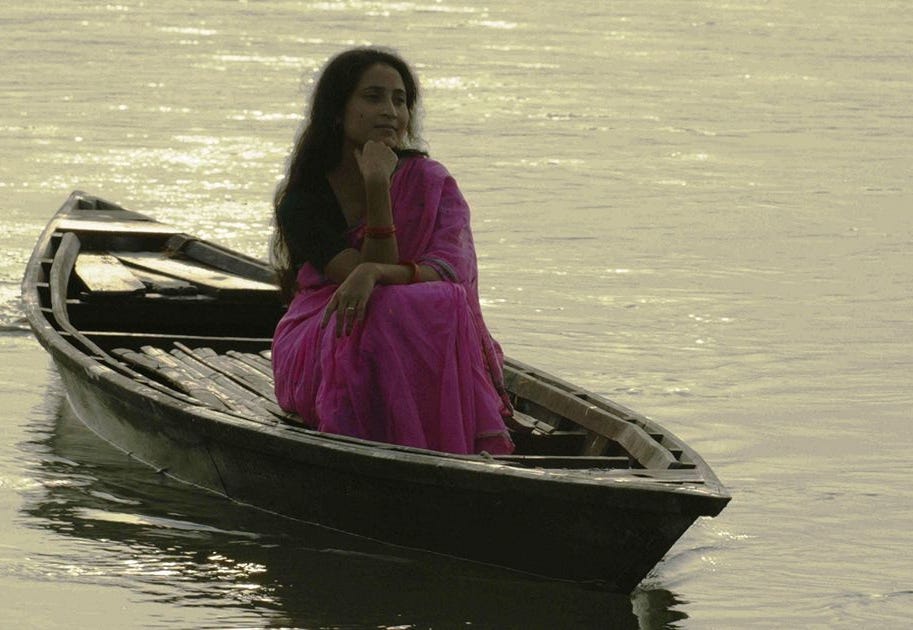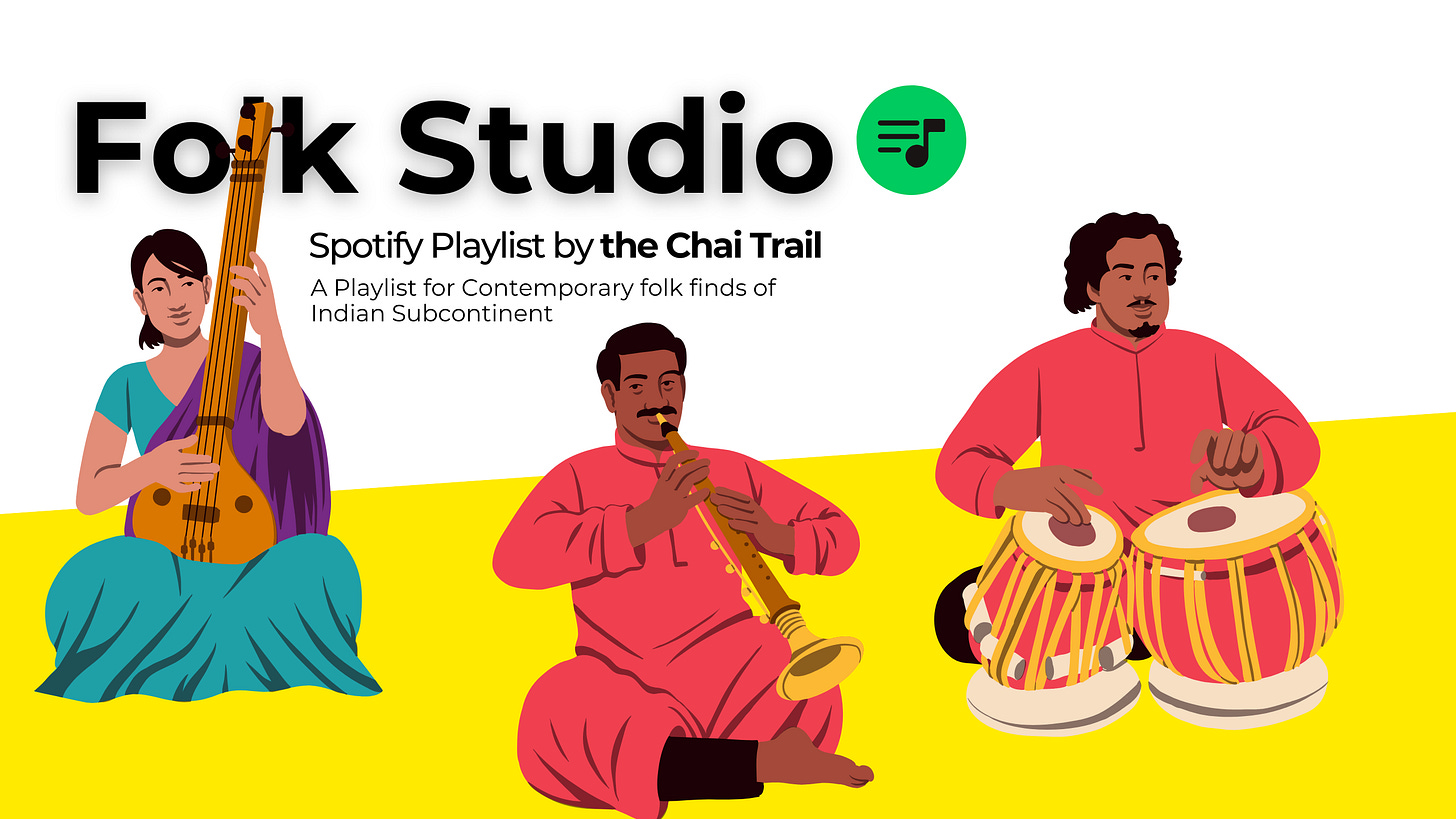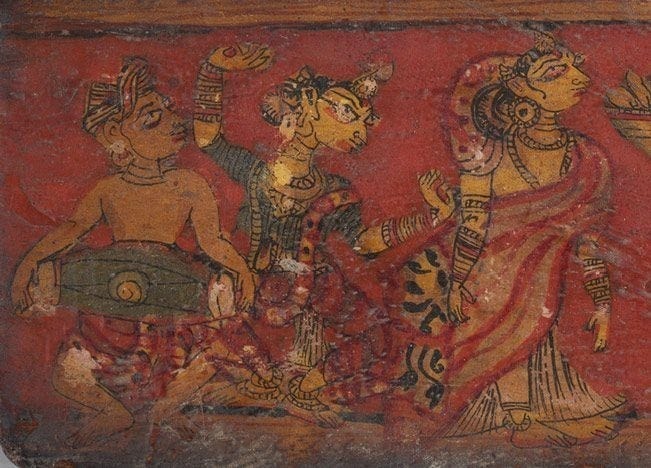An Open Letter to the world of forgotten Indian Folk Art | Goalparia Lokageet, Swāñg..
Edition 1, 7th Feb'25 | An Open Letter, a Newsletter by the Chai Trail
Hello,
I’m Ashad, the founder of The Chai Trail Café and Studio in Naggar Himachal. After over a decade in branding, marketing, and product design across bustling cities like Bangalore and Delhi, I left the corporate grind after the second wave of COVID-19. Seeking solace, purpose, and community, I landed in the Kullu-Beas Valley, eventually finding a new home in Naggar's quaint little artsy village.
This email lands in your inbox because you’ve been an important part of my journey—from my roots in Gauripur, Assam, to Vellore, to the metropolitan chaos of Delhi. Whether you know it or not, your presence, words, or actions have inspired me deeply, and I remember you with immense gratitude.
So, here’s a new chapter of that journey—the first newsletter sharing stories, art, and ideas that echo the values I hold close to: empathy, community, and sustainability. Open Letter is a space to celebrate vernacular art, explore harmony with nature, advocate for equality, and foster a kinder, more inclusive world. It’s not just a newsletter—it's an invitation to be part of a larger conversation about preserving what matters most.
P.S. Feel free to unsubscribe at this point, no hard feelings. Promise 🤞🏼
Welcome to An Open Letter, a newsletter straight from The Chai Trail—our “Mohabbat Ki Dukaan” ❤️
Thank you, to everyone who visited us or contributed to making The Chai trail, an emotion. For the past three years, The Chai Trail Café has been more than a place to sip chai—it’s been a meeting point of art, nature, community, and endless chai-fueled conversations.
This newsletter is an extension of those moments.
Each edition is an invitation to discover:
The rich diversity of vernacular art and crafts.
Stories of living harmoniously with nature.
Perspectives advocating empathy, equality, and kindness for all beings.
In this first edition, we feature:
A heartfelt tribute to Pratima Barua Pandey, the queen of folk music.
A curated playlist of Indian contemporary folk songs to brighten your day.
Insights into Himachal’s art and heritage, courtesy of our friends at Xphive.
Spotlight on Pratima Barua Pandey – The Queen of Folklore
This is the story of my hometown, and I am proud to share Pratima Pandey’s Story.
Growing up in Gauripur, a small town in Assam’s Dhubri district shaped by the mighty Brahmaputra and its tributaries, I was surrounded by a rich tapestry of cultures. In this unique blend of Bengali Muslims, Assamese Hindus, Jains, Koch Rajbonshis, Sikhs, and others, one thing stood out—a shared connection to the land and its stories. It was here, in the heart of this cultural crossroads, that I first encountered the music of Pratima Barua Pandey.
Singing in my mother tongue, the Goalpariya dialect, Pratima’s songs were more than melodies—they were an ode to our community's resilience, struggles, and shared joys. Her music transcended boundaries of caste, religion, and language, holding together the diverse communities of Western Assam. As the torchbearer of Goalpariya folk music, she gave a voice to the unspoken stories of the river people, ensuring that the beauty and depth of this heritage would never fade.
Discover her story and the legacy she left behind: Queen of Folklore: Pratima Barua Pandey.
Folk Studio Playlist – A Soundtrack for Your Soul
Music bridges worlds and this curated playlist of contemporary Indian folk songs does just that. Featuring melodies that blend tradition and modernity, these tracks transport you to serene Himalayan villages and bustling craft bazaars. The playlist consists of songs from 10+ Dialects/Languages of the Indian sub-continent
Each song celebrates India’s diverse folk traditions, from hauntingly beautiful vocals to soulful instrumentals.
Read more about the artists and their journey Read Now.
Re-claiming the 'Swāñg': An Ancient Indian Folk Theatre- By Himachal Dastaangoi Project
My good friend Azhar, an alumnus of Aligarh Muslim University and a dedicated Dāstāngo artist, runs the Himachal Dāstāngoī Project, a publication committed to preserving India's rich oral traditions. In his latest article, he explores the fascinating world of Swang, an ancient Indian folk theatre form on the brink of obscurity.
Once flourishing across Haryana, Uttar Pradesh, Rajasthan, and Madhya Pradesh, Swang was a unique theatrical tradition that prioritized dialogue over dance, using mimicry and storytelling to bring religious tales and folklore to life in open-air performances. Over time, Swang evolved, giving rise to Nautanki—a more dramatic and musical folk theatre that gained widespread popularity in North India. With its bold narratives, vibrant music, and social themes, Nautanki eventually overshadowed Swang, though remnants of its influence still echo in Indian performance traditions today.
Read the full story
The Himachal Dāstāngoī Project is dedicated to preserving and archiving the oral histories and traditions of Himachal Pradesh, particularly focusing on the Beas Valley. By documenting these cultural narratives, the project ensures that the stories, folklore, and artistic expressions of the region are not only remembered but also celebrated for generations to come. Subscribe to
on substack to stay with his odyssey.
Join An Open Letter—Where Stories Shape Change
At An Open Letter, we believe stories hold the power to inspire, preserve, and transform. Whether it's a forgotten folk legend, a cherished hometown tale, or a traditional craft that deserves recognition, we want to hear it.
We’re building a team of passionate volunteers—writers, researchers, video editors, designers, podcast creators, and storytellers—who love art and bring the right empathy to this journey.
Let’s grow this community, one story at a time. If you're interested, reply to this email or contact simply.ashad@gmail.com.
Follow us on Instagram for regular updates: The Chai Trail | An Open Letter
With love and a steaming hot cup of chai,
Mir Ashad
Founder, The Chai Trail Café and Studio
Naggar, Kullu (HP)






